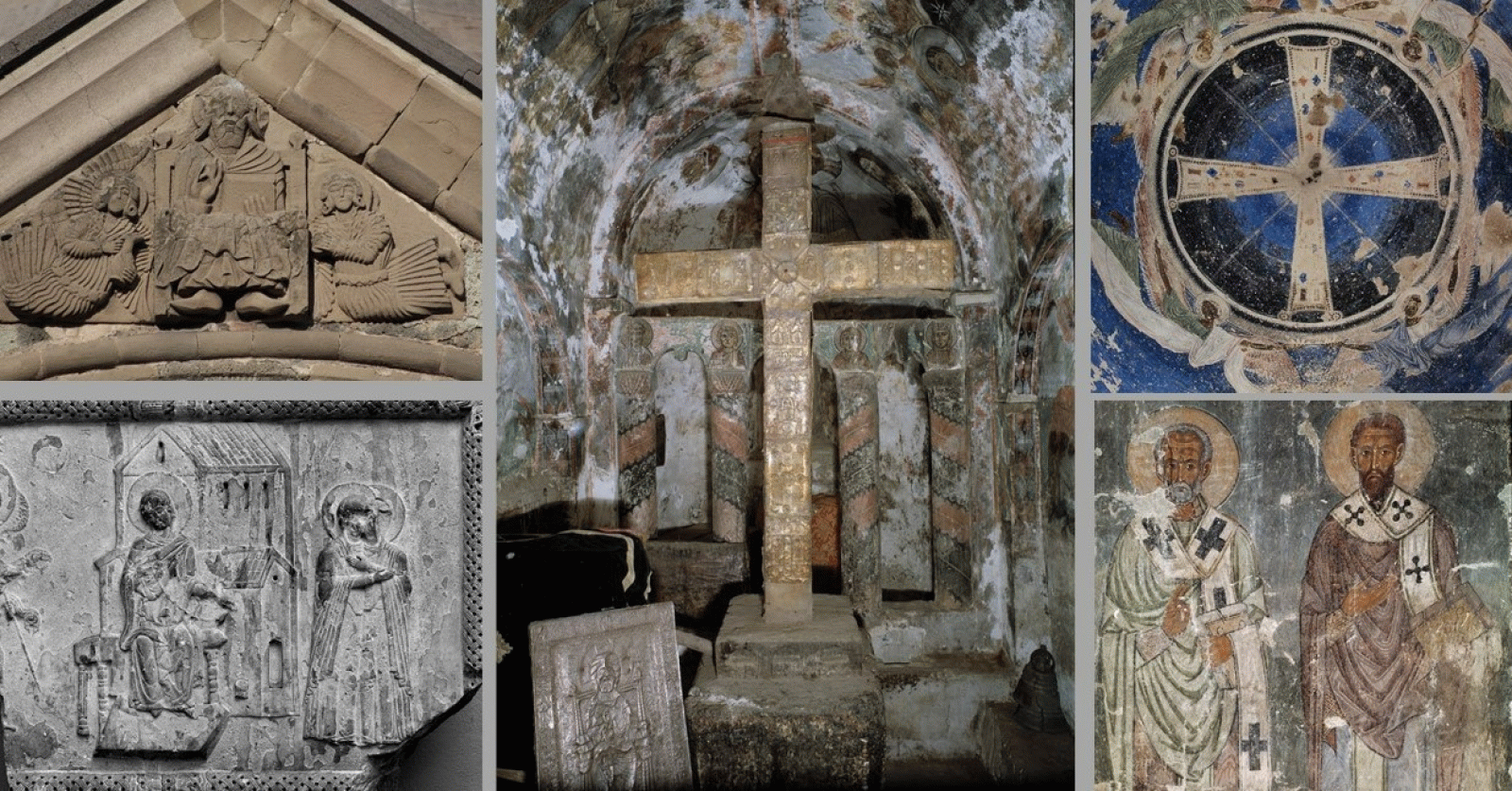Georgia Project Lecture Series
Mzia Janjalia
In Search of Cultural Identity Markers: A Case Study on Eleventh-Century Georgian Religious Art
Aesthetics, Art, and Architecture in the Caucasus Lecture Series Part II
In collaboration with the George Chubinashvili National Research Centre for Georgian Art History and Heritage Preservation

The research aims at revisiting scholarly labels and identity markers associated with medieval Georgian art. The eleventh century, chosen for a case study, is of importance not only in terms of the unification of the Georgian Church and of the Georgian Kingdom, but also the cultural turn towards Constantinople that occurred at the time. At one glance the scholarly interpretation of the eleventh-century Georgian religious culture is firmly established and leaves no room for interpretation, but closer observation reveals an obvious need for further insights. The current study analyses examples witnessing the variety of tastes seen in the works commissioned by members of the Georgian secular and ecclesiastical elites and the significance of Jerusalem traditions for Georgian Christianity.
The paper seeks to explore further an art historical concept of an ongoing interdisciplinary research project: Georgia and Byzantine Commonwealth: Politics, Culture and Identity on the Imperial Frontiers, 11th Century, aiming at preparing the ground for a rethinking of the labels of “Byzantine” and “Byzantine Commonwealth”.
Mzia Janjalia is senior research fellow at George Chubinashvili National Research Center for Georgian Art History and Heritage Preservation and associate professor in the history of medieval Georgian art at Tbilisi State Academy of Arts. Her research focuses on medieval Georgian art and covers issues of medieval cultural identities, intercultural relations and cultural transfer. Her interest lies in methodologies of cultural heritage preservation and conservation. She is author and co-author of several publications, among them: Georgian Christian Community in the Holy Land, Tbilisi 2022 (co-author); Cross-Cultural Features in Medieval Art. The Case of the Early Fourteenth-Century Wall Paintings at the Monastery of the Holy Cross in Jerusalem, Convivium VII/2, 2020; Trend versus Cultural Context in Medieval Art: The Case of the Kirants Paintings, Convivium V/2, 2018 (co-author); Medieval Art and Modern Approaches: A New Look at the Akhtala Paintings, Convivium Supplementum The Medieval South Caucasus: Artistic Cultures of Albania, Armenia and Georgia, Ivan Foletti & Erik Thunø eds., 2016 (co-author). Currently she represents Chubinashvili National Research Centre in the joint project with the Kekelidze National Centre of Manuscripts, and the Institute of History and Ethnology at Tbilisi State University: Georgia and Byzantine Commonwealth: Politics, Culture and Identity on the Imperial Frontiers, 11th Century (NFR-19-225, Rustaveli National Science Foundation).
05 July 2022, 3:00pm
This event will take place online.
To participate please register in advance via Zoom: https://zoom.us/meeting/register/tJEvcOyhqj8vGdDYJOCNrSKtjnzHSxI2Kx6M
After registering, you will receive a confirmation email containing information about joining the meeting.
Notice
This event will be documented photographically and/or recorded on video. Please let us know if you do not agree with the Kunsthistorisches Institut in Florenz using images in which you might be recognizable for event documentation and public relation purposes (e.g. social media).


